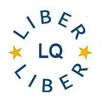Sustainable Free: Lessons Learned from the Launch of a Free Service Supporting Publishing in Art History
DOI:
https://doi.org/10.18352/lq.9587Keywords:
art history, open access, publishing, image permissionsAbstract
Hilary Ballon and Mariet Westermann, writing about the struggles of publishing in art history noted that “It is a paradox of the digital revolution that it has never been easier to produce and circulate a reproductive image, and never harder to publish one.” If publishing in general is in crisis because of the seismic re-ordering in a digital world, the field of art history is the extreme tail of the spectrum; rights holders are accustomed to licensing image content for limited edition print runs. Given this particularly challenging corner of the publishing work, a project initiated by the Metropolitan Museum offers some hope of a collaborative way forward. What sociological re-engineering enabled progress on this problem? It is possible that there are other lessons here too, that might throw at least streaks of light on other process re-engineering provoked by digital innovation in publishing?
This paper reviews how a leading repository of art (The Metropolitan Museum of Art) and a non-profit intermediary (ARTstor) created an alternative pathway to provide primary source content in support of image-intensive publishing. This venture is framed in the context of a publishing system moving toward greater freedom and an aim to bring about ever lower (or no) fees to readers.
In general, providing academic content for free requires a re-structuring of a public release process – either of processed content or less processed content. To the extent that processing adds value, it might be worth paying for. This case study argues that there are places where community wide interests align, describes what it takes to keep them aligned, and explores what we did collectively to facilitate re-structuring. The conclusion explores whether there are lessons for open access publishing more generally in the example of cross-subsidization among mission (and not only marketing) driven organizations.
Downloads

Published
Issue
Section
License
Copyright (c) 2014 James Shulman

This work is licensed under a Creative Commons Attribution 4.0 International License.





